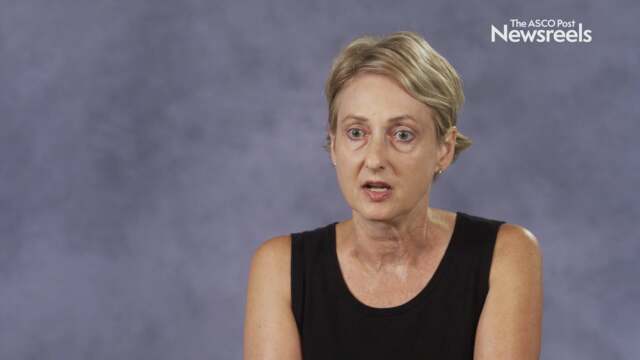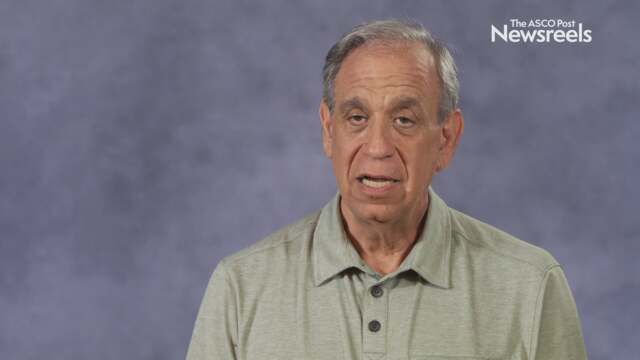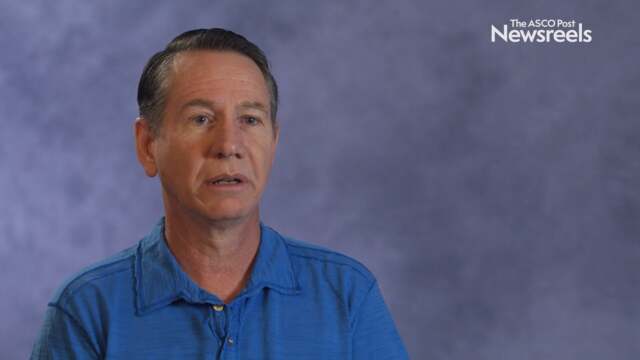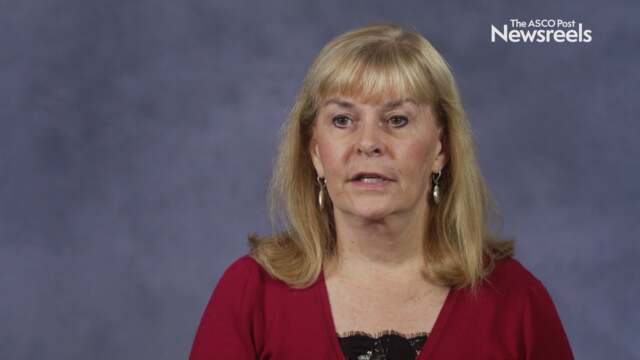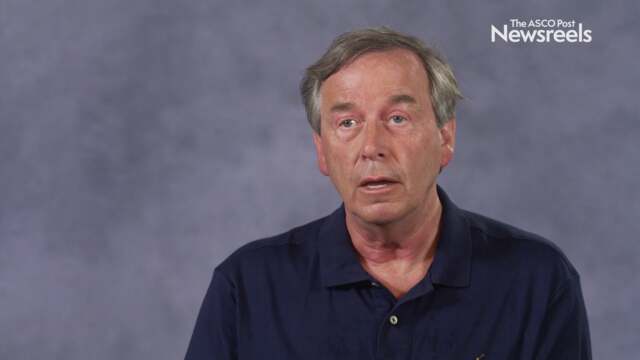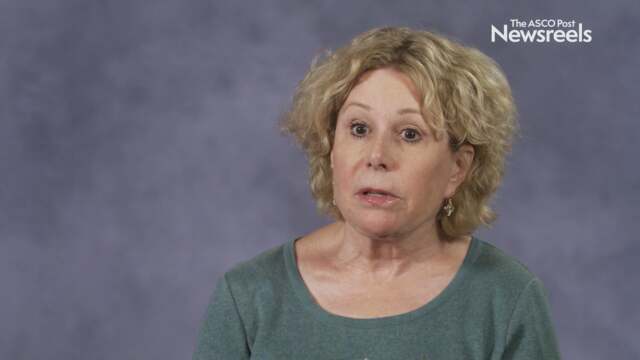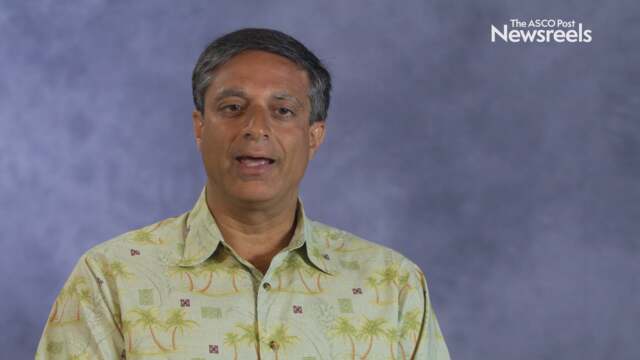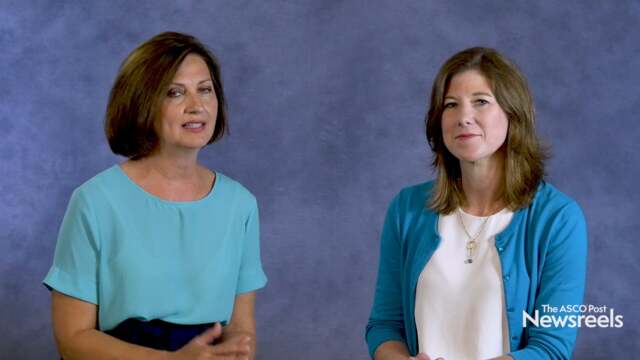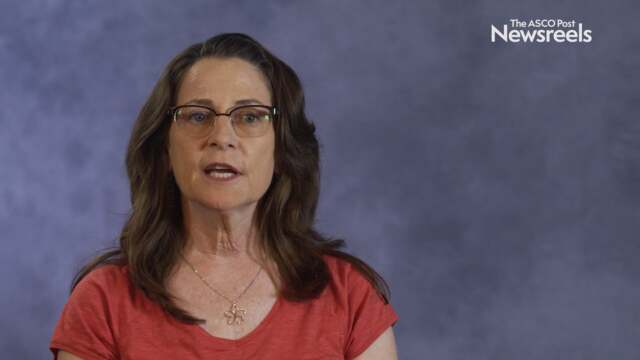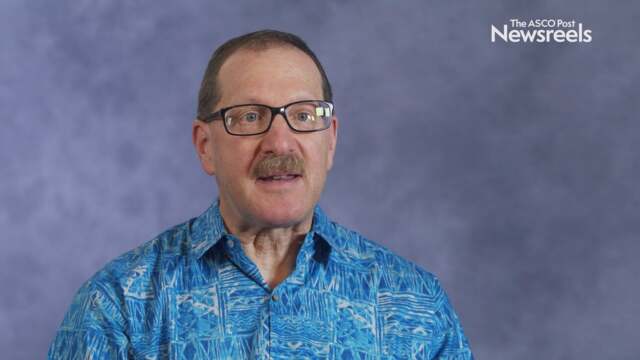Andrew D. Zelenetz, MD, PhD, of Memorial Sloan Kettering Cancer Center, discusses the various ways genomics can be used in diagnosing and treating non-Hodgkin lymphoma and the need for a proper support tool to help interpret the data.
Related Videos
Susan M. O’Brien, MD, of the University of California, Irvine, discusses three oral agents for the treatment of chronic lymphocytic leukemia/small lymphocytic lymphoma, and the use of chemotherapy for the disease.
Sagar Lonial, MD, of the Emory University School of Medicine, discusses the importance of planning for relapse based on the treatment a patient has received, new targets for refractory myeloma, and the role of cellular therapy.
Susan Blumel, RN, BSN, of the University of Nebraska Medical Center, and Laura J. Zitella, MS, RN, ACNP-BC, AOCN, of Stanford Health Center, discuss immunotherapy, CAR T-cell toxicities, and the principles of team management.
Peggy Burhenn, MS, RN-BC, AOCNS, of the City of Hope National Medical Center, discusses the challenges of working with older lymphoma patients and the importance of effective geriatric assessments.
John G. Gribben, MD, DSc, of the Barts Cancer Institute, discusses how understanding the role of the tumor microenvironment can help identify treatment targets, including combination therapies, and improve outcome for patients with indolent lymphomas.
Peggy Burhenn, MS, RN-BC, AOCNS, of the City of Hope National Medical Center, discusses the challenges of working with older lymphoma patients and the importance of effective geriatric assessments.
Laurie H. Sehn, MD, MPH, of the British Columbia Cancer Centre for Lymphoid Cancer, discusses the challenges of treating high-grade B-cell lymphoma in older patients and those with comorbidities. Several strategies have been devised, but more research is needed as well as more options for novel therapies.
Philip J. Bierman, MD, of the University of Nebraska Medical Center, discusses how to identify and treat the 1% to 2% of patients with diffuse large B-cell lymphoma who have central nervous system involvement as well as systemic sites at the time of diagnosis.
Susan M. O’Brien, MD, of the University of California, Irvine, discusses three oral agents for the treatment of chronic lymphocytic leukemia/small lymphocytic lymphoma, and the use of chemotherapy for the disease.
